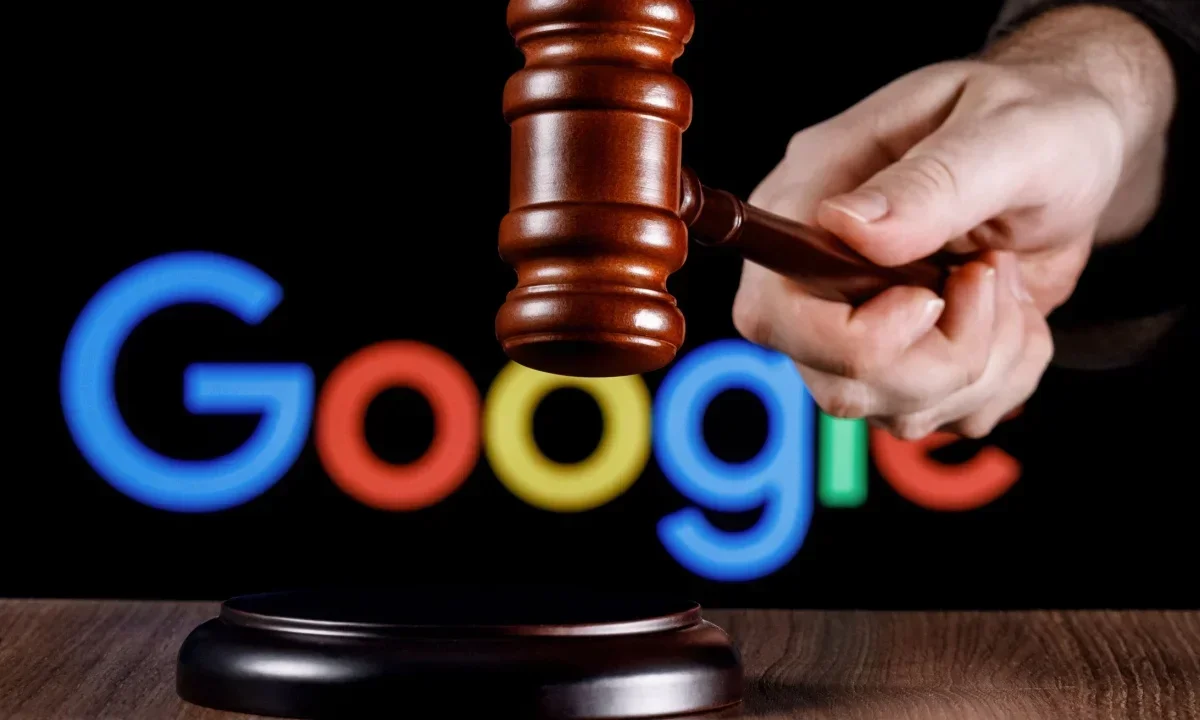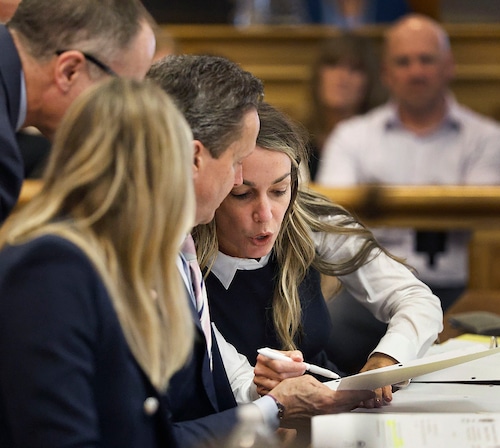The Zuckerberg-Trump Dynamic: Implications For The Digital Landscape

Table of Contents
Trump's Use of Facebook and its Impact
Trump’s masterful use of Facebook significantly influenced his presidential campaigns and his presidency. This success, however, came at a cost, raising profound questions about the platform's role in shaping public opinion and disseminating misinformation.
Amplifying the Message: How Facebook's Algorithms Aided Trump's Reach
- Targeted Advertising: Trump's campaign effectively utilized Facebook's targeted advertising capabilities, reaching specific demographics with tailored messages. This precision allowed for efficient resource allocation and maximum impact.
- Newsfeed Algorithms: Facebook's newsfeed algorithm, designed to prioritize engaging content, inadvertently amplified Trump's often controversial posts, ensuring maximum visibility to his supporters and beyond.
- Organic Reach: While organic reach declined overall, Trump’s massive following and highly engaged audience meant his posts still garnered significant attention without paid promotion, further compounding his reach. His Facebook following consistently numbered in the tens of millions, representing unparalleled engagement for a political figure.
- Controversy: The controversy surrounding Facebook's approach to political advertising, particularly regarding transparency and accountability, sparked intense debate about its impact on voter behavior and the integrity of democratic processes. Questions arose regarding whether Facebook’s algorithms created an uneven playing field, favoring certain candidates and viewpoints.
The Spread of Misinformation: Facebook's Role in Disseminating False or Misleading Information During Trump's Presidency
- Examples: Numerous instances of misinformation and disinformation spread rapidly across Facebook during Trump's presidency, often originating from dubious sources and amplified by bot networks and coordinated campaigns. Examples include false claims about voter fraud, unsubstantiated accusations against political opponents, and the promotion of conspiracy theories.
- Facebook's Response: Facebook's response to the spread of misinformation was often criticized as slow, inconsistent, and insufficient. Fact-checking initiatives were implemented, but their effectiveness remained a subject of ongoing debate.
- Cambridge Analytica: The Cambridge Analytica scandal highlighted the vulnerability of user data and the potential for misuse in targeted political campaigns, further fueling concerns about Facebook's responsibility in safeguarding user information and preventing manipulation.
Zuckerberg's Response and the Shifting Power Dynamics
Zuckerberg’s attempts to navigate the challenges of regulating political speech on Facebook exposed the inherent complexities of balancing free speech principles with the need to combat misinformation and harmful content.
Balancing Free Speech and Responsibility: Zuckerberg's Tightrope Walk
- Congressional Testimony: Zuckerberg's testimony before Congress highlighted the pressure he faced to address concerns about Facebook's role in political discourse and the spread of misinformation. His appearances underscored the ongoing debate about the responsibilities of tech platforms.
- Evolving Content Moderation Policies: Facebook's content moderation policies evolved over time, reflecting an ongoing struggle to find the right balance between protecting free expression and preventing the spread of harmful content. These policy changes were often met with criticism from various stakeholders, including politicians, activists, and users.
- Censorship vs. Free Expression: The debate surrounding censorship versus free expression continues to be a central challenge for Facebook and other social media platforms. The question of who decides what constitutes "harmful" content and how these decisions are made remains a point of contention.
The Limits of Platform Power: Facebook's Struggle Against Disinformation
- Coordinated Disinformation Campaigns: Facebook has struggled to effectively combat sophisticated disinformation campaigns, which often employ tactics such as coordinated inauthentic behavior, the spread of deepfakes, and foreign interference.
- Deepfakes and AI-Generated Content: The rise of deepfakes and other forms of AI-generated content presents a significant challenge to content moderation efforts, making it increasingly difficult to distinguish between real and fabricated information.
- Section 230: The ongoing debate surrounding Section 230 of the Communications Decency Act, which shields online platforms from liability for user-generated content, has further complicated the issue of content moderation and platform accountability.
Long-Term Implications for the Digital Landscape
The Zuckerberg-Trump dynamic has left an indelible mark on the digital landscape, impacting public trust, political discourse, and the future of content moderation.
The Erosion of Trust: A Fractured Information Ecosystem
- Misinformation and Media Literacy: The spread of misinformation has eroded public trust in social media platforms and traditional news media alike. The challenge of improving media literacy and empowering users to critically evaluate information is paramount.
- Political Discourse and Social Cohesion: The polarization of political discourse, fueled in part by the amplification of divisive content on social media, has negatively impacted social cohesion and constructive dialogue.
- Echo Chambers and Filter Bubbles: Algorithmic curation can contribute to the formation of echo chambers and filter bubbles, reinforcing existing biases and limiting exposure to diverse perspectives.
The Future of Content Moderation: Navigating Ethical and Technological Challenges
- Legislative Solutions: The need for greater transparency and accountability from social media platforms is prompting legislative action at both the national and international levels. New regulations and laws aimed at combating misinformation and protecting user data are being debated and implemented.
- AI in Content Moderation: Artificial intelligence is being increasingly employed in content moderation efforts, but ethical concerns remain about bias in algorithms and the potential for unintended consequences.
- Ethical Dilemmas: The ongoing debate about content moderation highlights fundamental ethical dilemmas related to free speech, censorship, and the power of technology to shape public opinion.
The Enduring Legacy of the Zuckerberg-Trump Dynamic
The Zuckerberg-Trump dynamic represents a pivotal moment in the history of the internet and its impact on society. The relationship profoundly impacted political discourse, media consumption, and the future of social media platforms. The spread of misinformation, the challenges of content moderation, and the erosion of public trust all stem from this complex interplay. Understanding the Zuckerberg-Trump dynamic is crucial for navigating the complexities of the digital landscape. Stay informed about the evolving relationship between technology and politics; learn more about the impact of the Zuckerberg-Trump dynamic on our society. The ongoing consequences of this dynamic require continued vigilance and critical engagement from all stakeholders to ensure a healthier and more responsible digital future.

Featured Posts
-
 Renewed Legal Showdown Google And Doj Clash Over Search Practices
Apr 22, 2025
Renewed Legal Showdown Google And Doj Clash Over Search Practices
Apr 22, 2025 -
 Another 1 Billion Cut Trump Administration Escalates Conflict With Harvard
Apr 22, 2025
Another 1 Billion Cut Trump Administration Escalates Conflict With Harvard
Apr 22, 2025 -
 A Timeline Of Karen Reads Murder Trials
Apr 22, 2025
A Timeline Of Karen Reads Murder Trials
Apr 22, 2025 -
 Are Bmw And Porsche Losing Ground In China A Deeper Look
Apr 22, 2025
Are Bmw And Porsche Losing Ground In China A Deeper Look
Apr 22, 2025 -
 A Pan Nordic Defense Strategy Integrating Swedish Armor And Finnish Infantry
Apr 22, 2025
A Pan Nordic Defense Strategy Integrating Swedish Armor And Finnish Infantry
Apr 22, 2025
